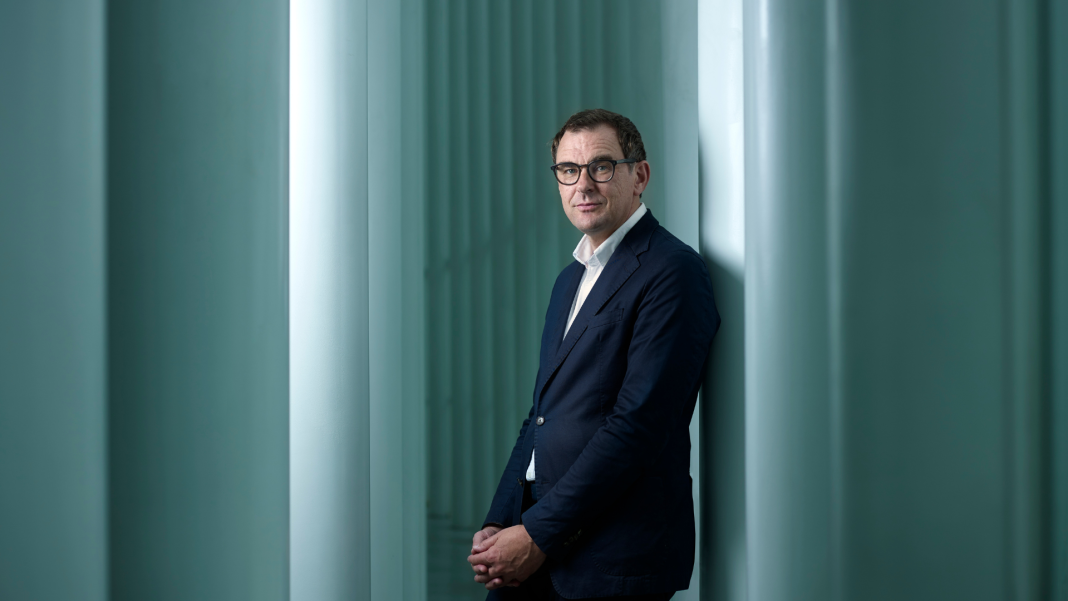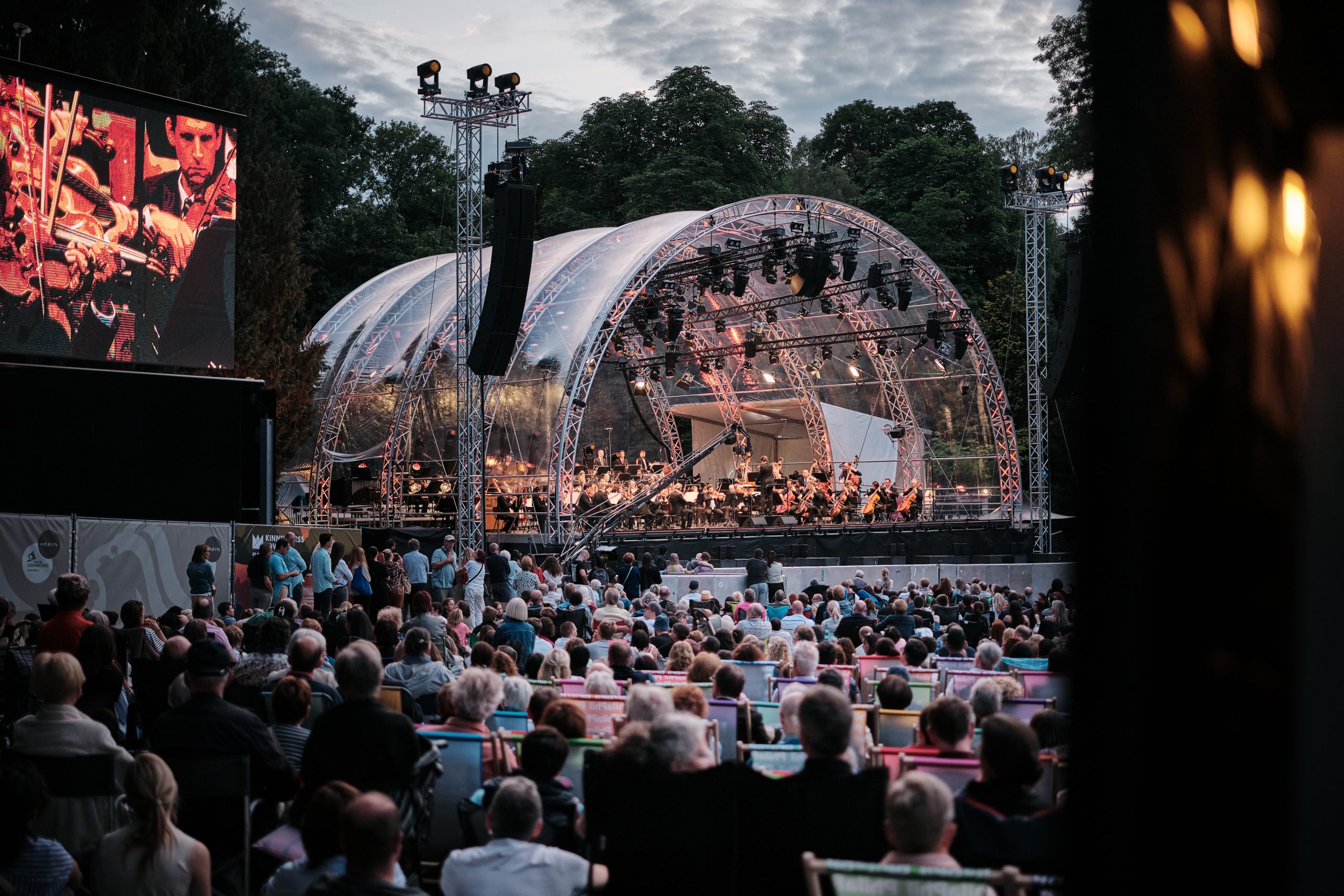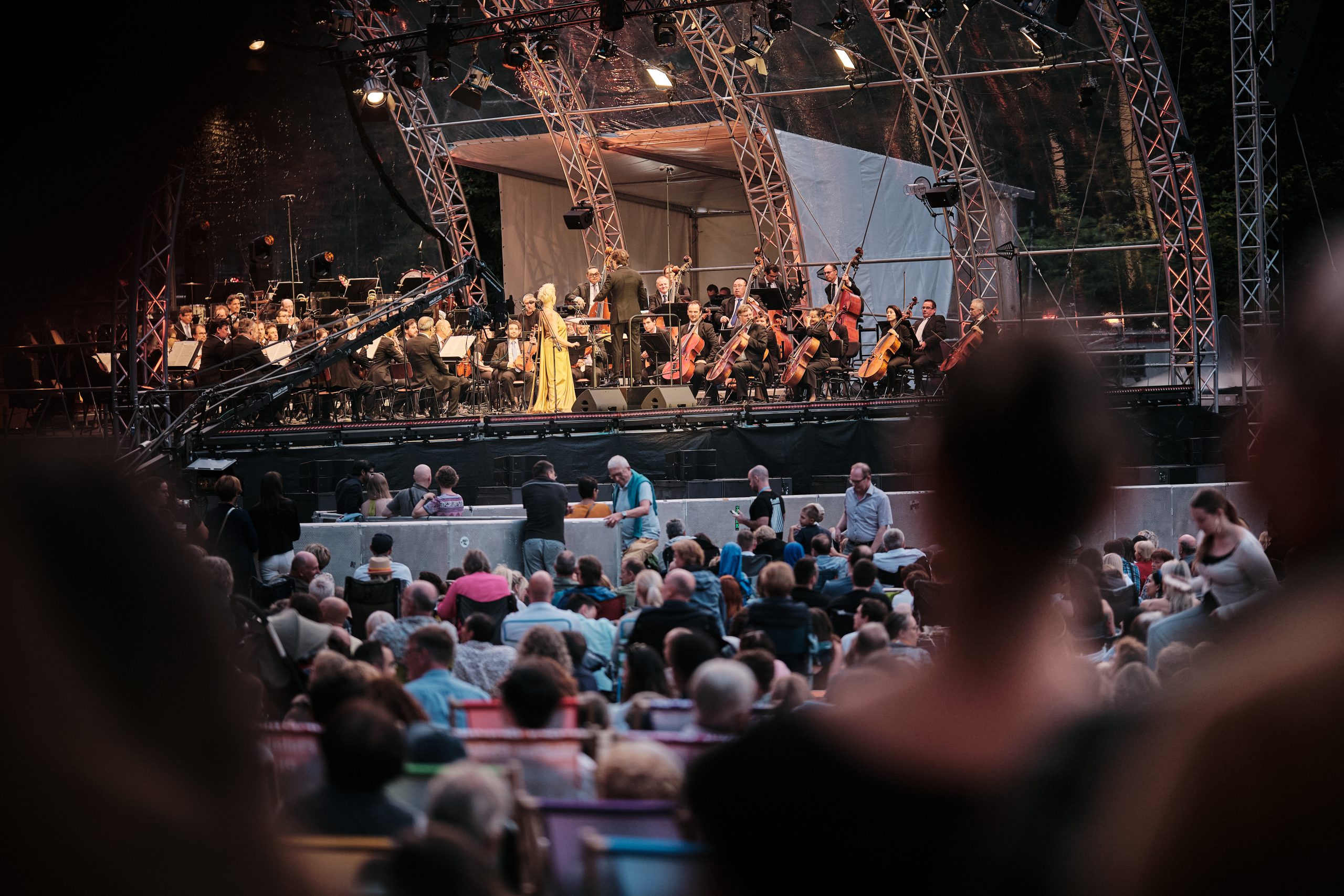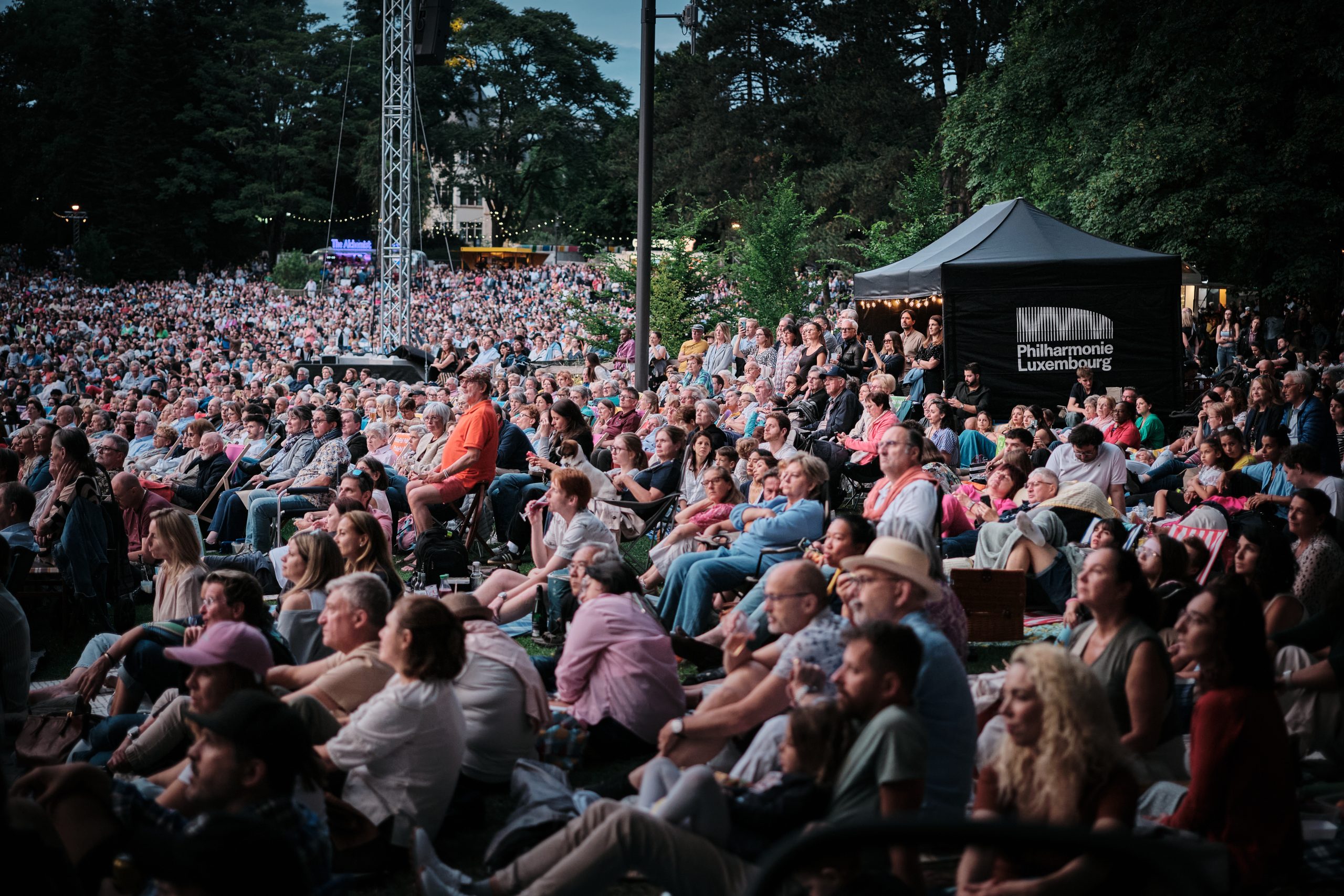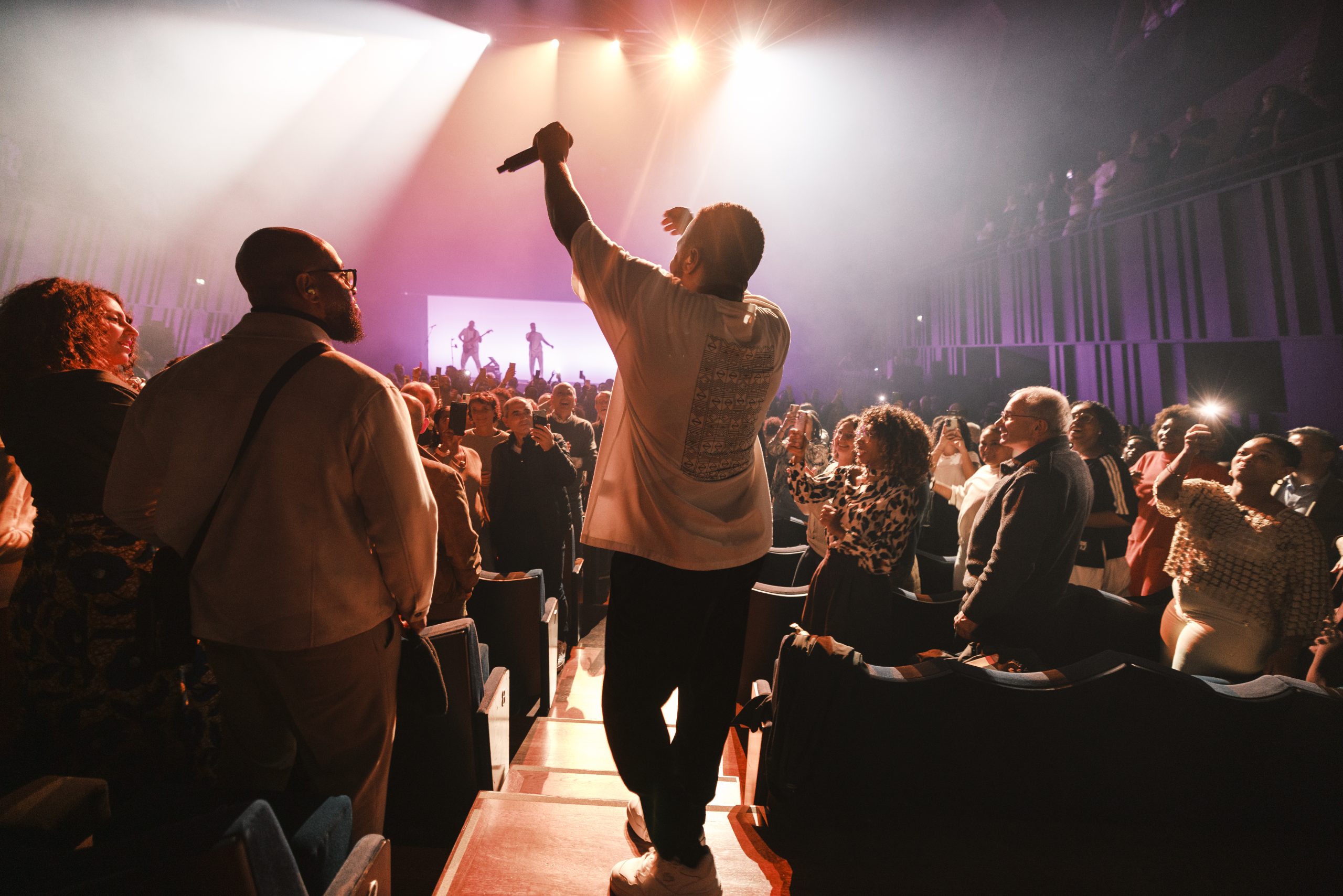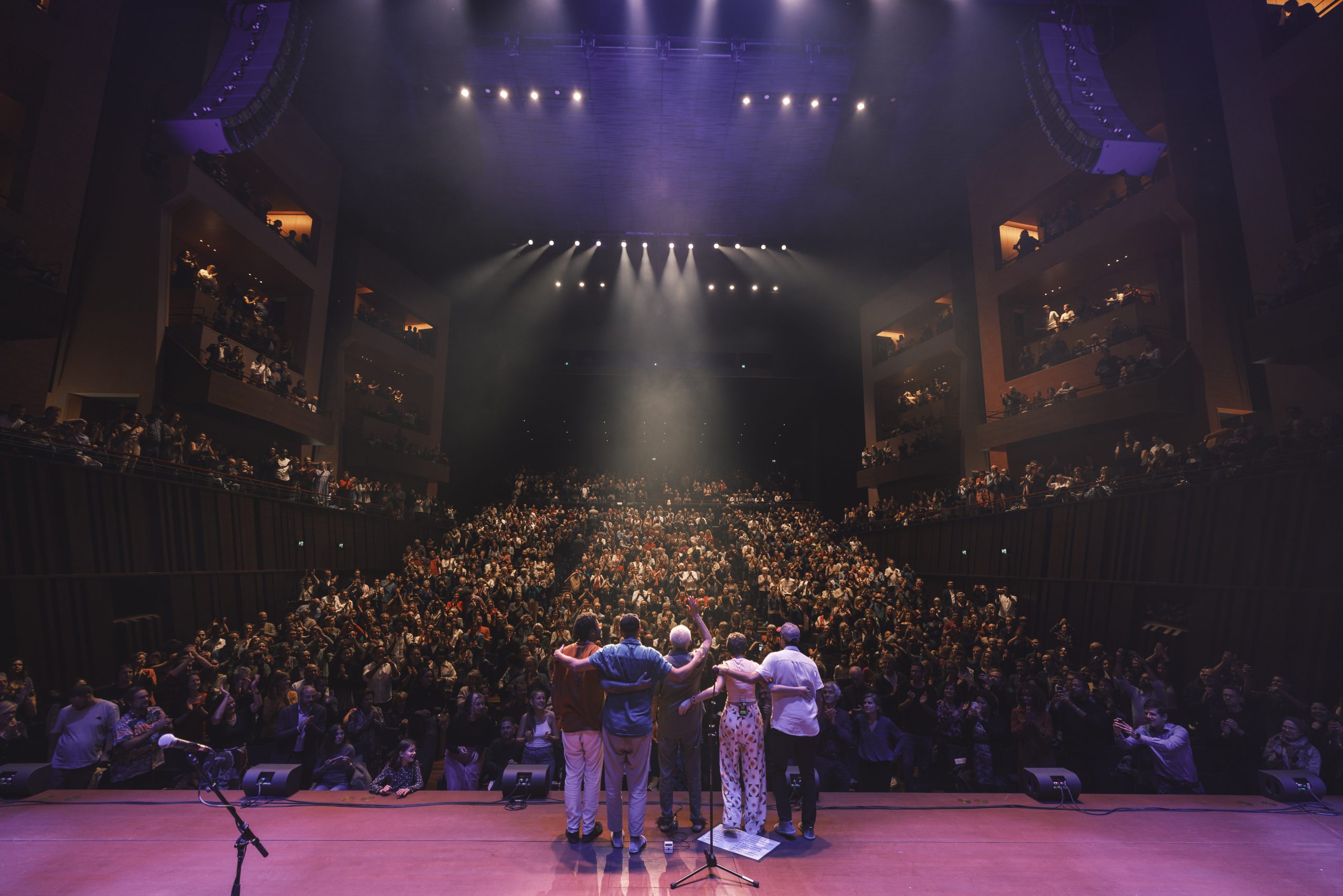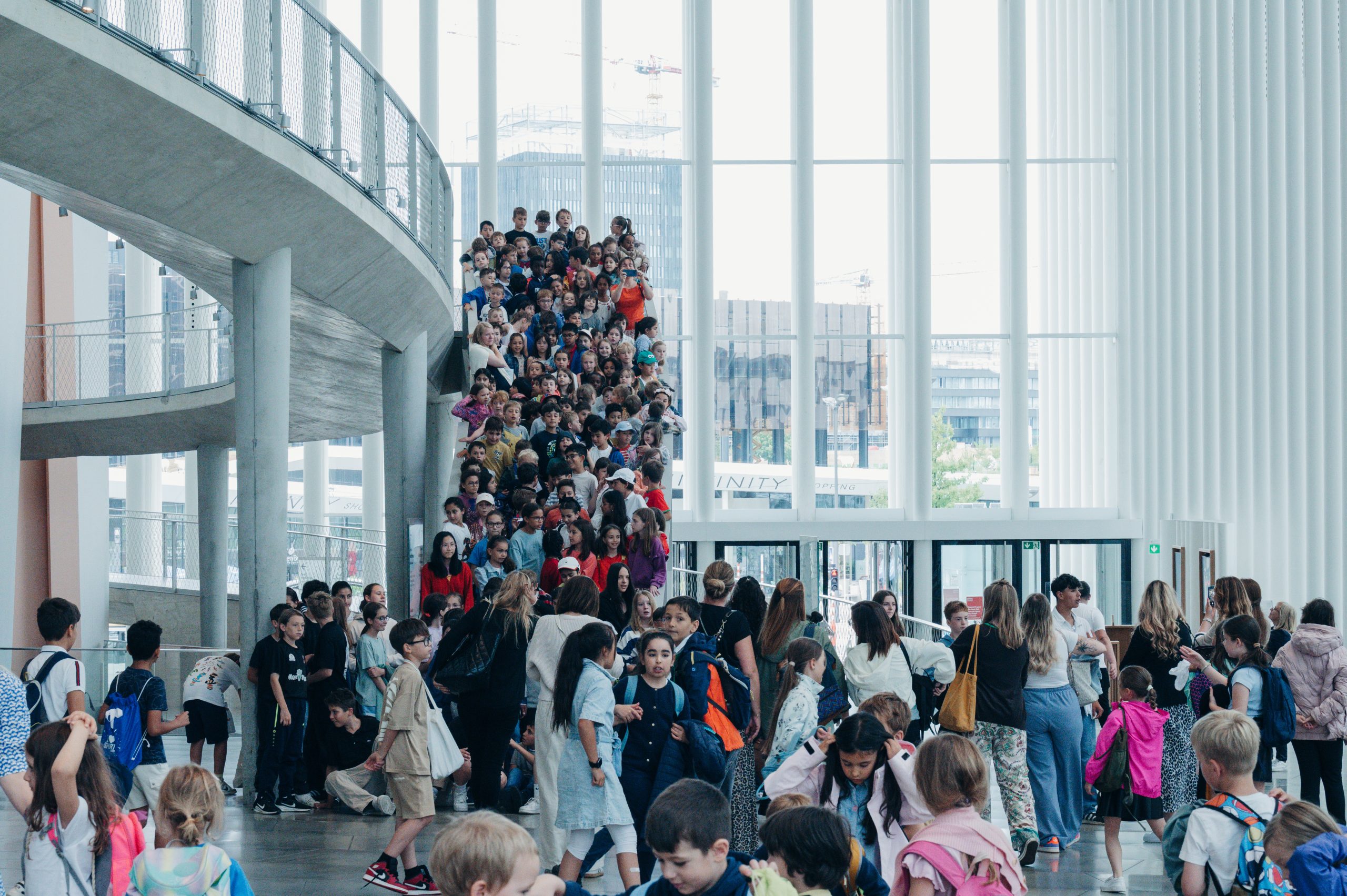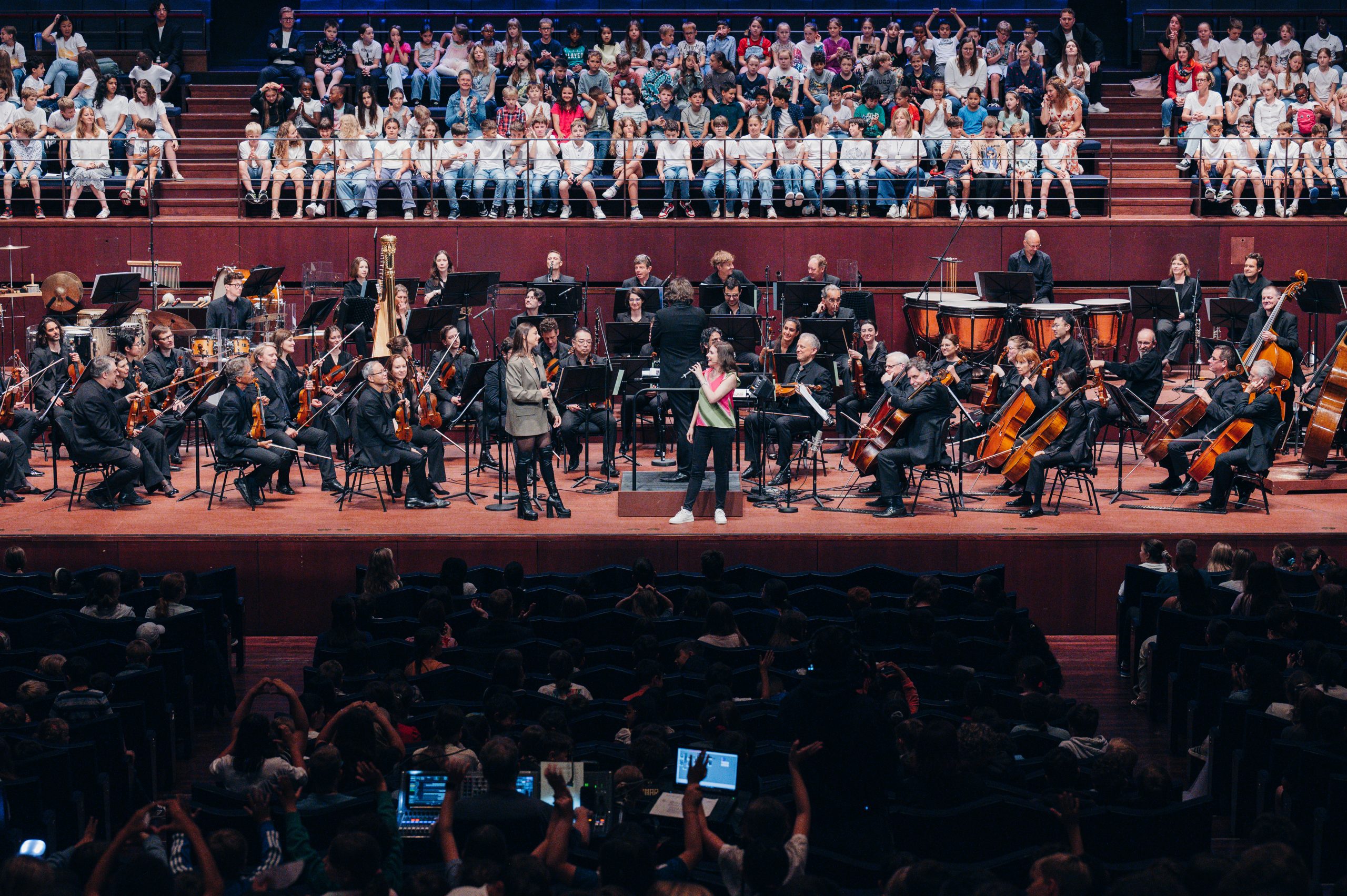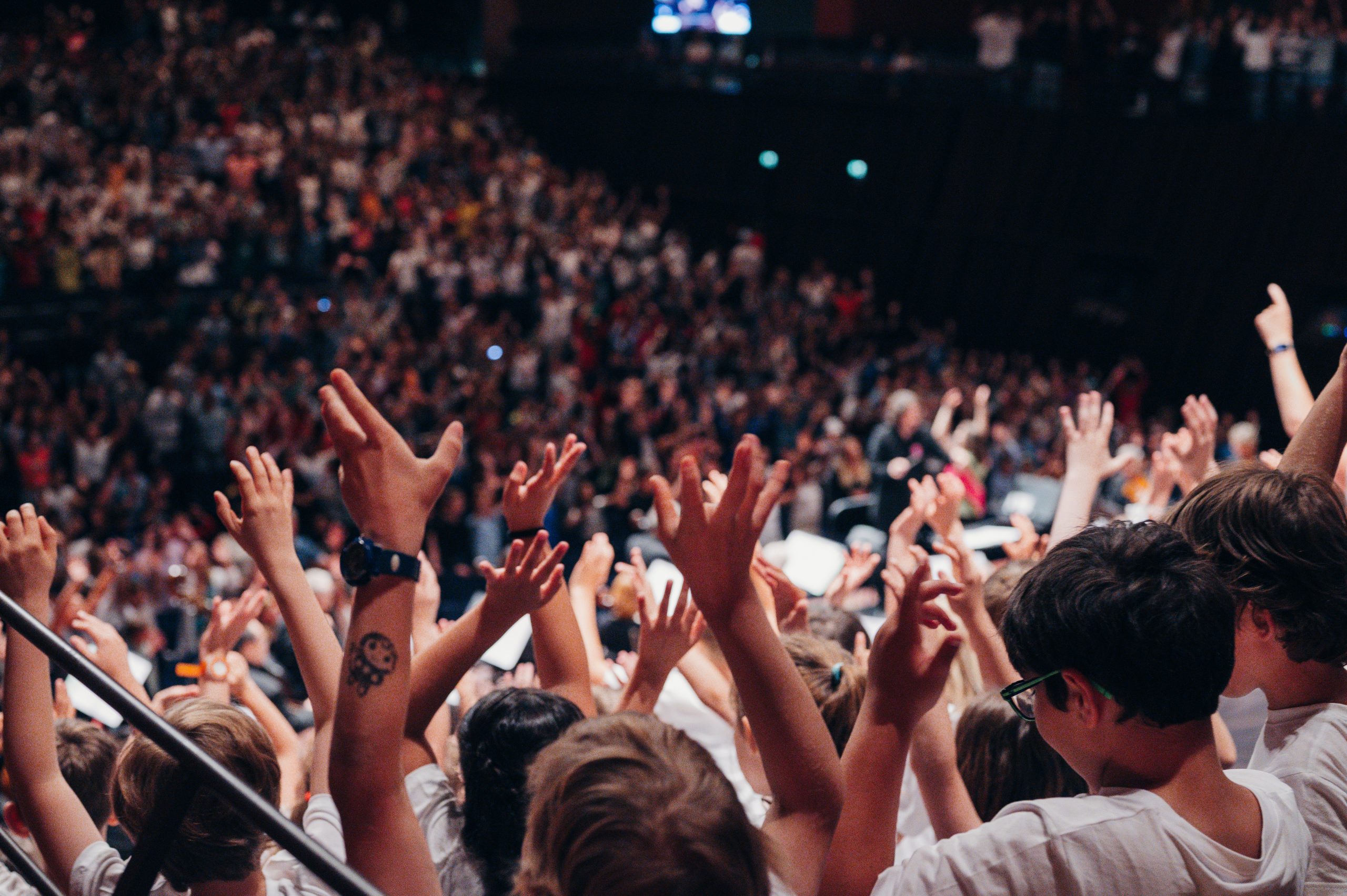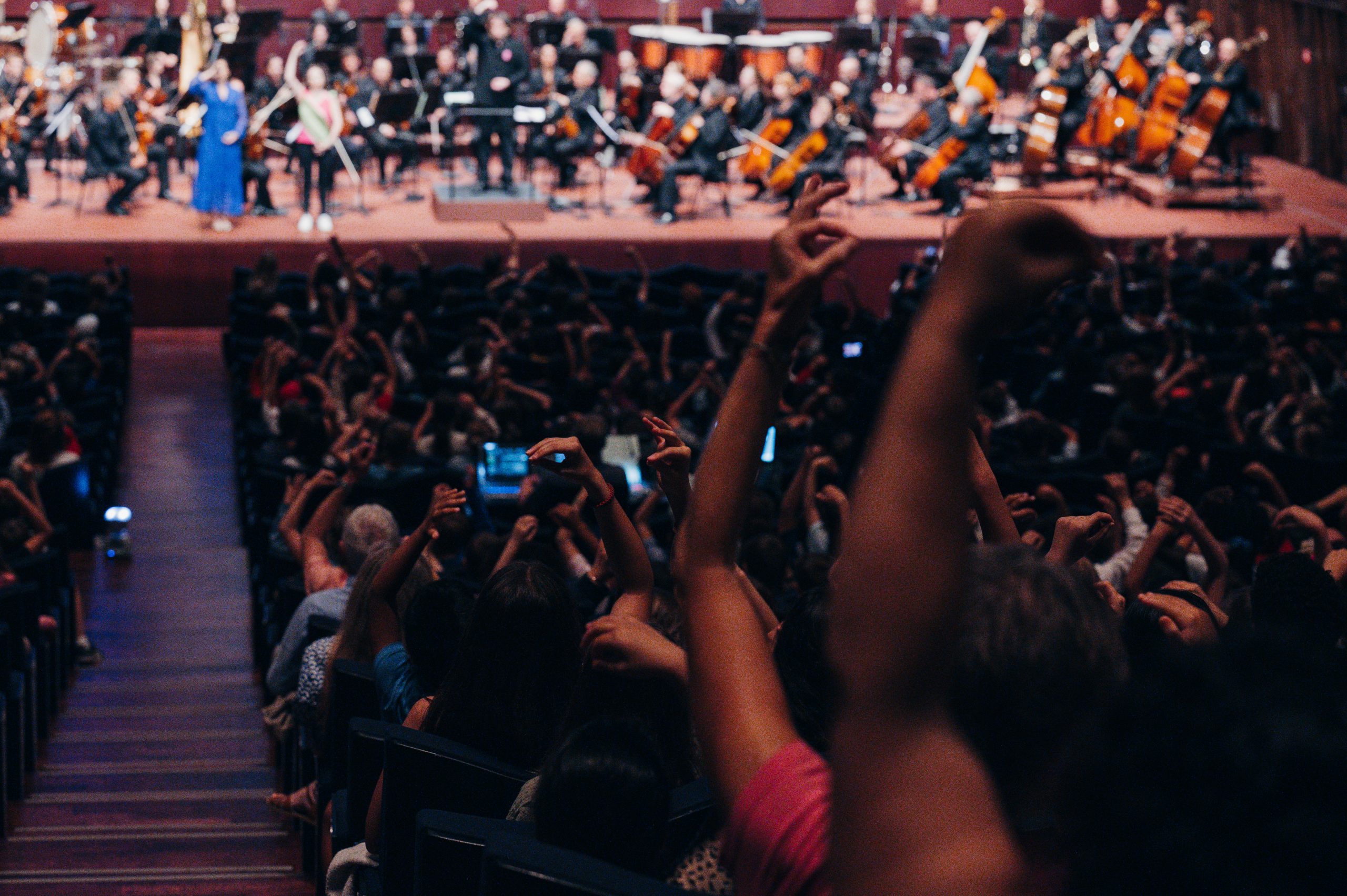Philharmonie Luxembourg’s 2025/26 season includes a diverse programme, reflected not just in terms of the artistic lineup but also in the ways it celebrates Luxembourg’s own diversity. Director Stephan Gehmacher shares how Luxembourg’s premier music venue is making culture more inclusive.
In July, the Philharmonie was busy preparing the summer concert series on the Kinnekswiss and its end-of-season party, which effectively transforms the Christian de Portzamparc-designed institution into a dance club.
And in September, the 2025/26 season officially kicked off, starting with the Berlin Philharmoniker under the direction of Kirill Petrenko playing Symphony No. 9 by Gustav Mahler—a composer for whom Philharmonie Luxembourg director general Stephan Gehmacher admits he has a special appreciation.
“My first job was at the Salzburg Festival [Salzburger Festspiele], and the festival for me was kind of an opening to the world, an escape for me from the small world of Salzburg,” he recalls.
Gehmacher moved to the grand duchy in 2013 to become the director of the Philharmonie Luxembourg. “Classic, symphonic music is where my heart was and probably still is but–especially through my work here–I’ve been able to learn a lot in very different fields of music,” he adds. “And I still enjoy that.”
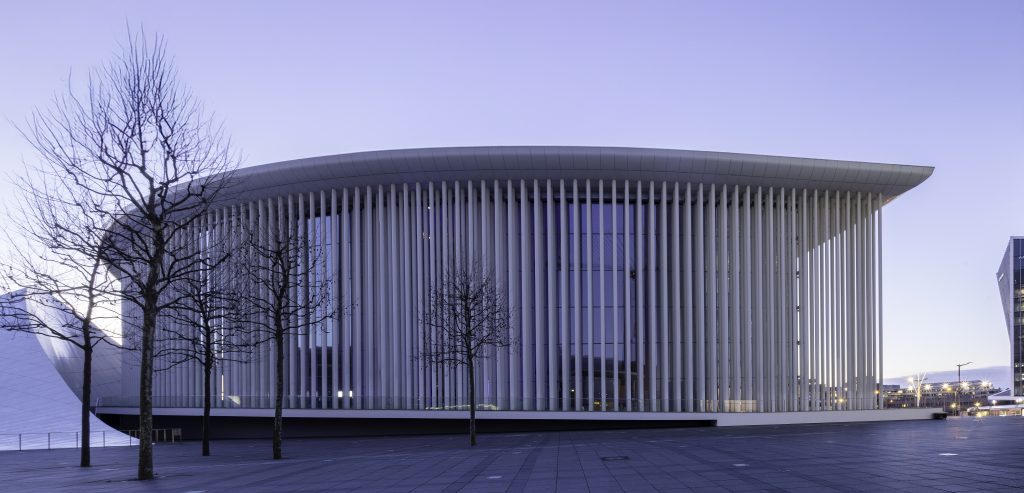
Diversity in music
This season promises another eclectic lineup. In addition to a number of concerts under the direction of world-renowned conductors, such as Sir John Eliot Gardiner, this season’s pop programme includes performers like Nick Cave, Anoushka Shankar and Gast Waltzing, to name a few. There’s a trilogy of ciné-concerts with a focus on Alfred Hitchcock, plus several evenings to mark 100 years of Hungarian composer György Kurtág. And plenty of family- and kid-friendly concerts and events to boot.
This year’s flagship festivals include “atlântico”, which brings together artists from lusophone countries; “rainy days”, which this year explores the interconnectedness between physical bodies and music; and a Christmas family festival (“Familljefestival Chrëschtag”) in December.
There will also be a focus on Indian music and traditions this season, including a unique “Rites of Spring with Vijay Iyer” on January 15, which revolves around Hindu spirituality and Holi traditions, expressed through sound “colours” instead of pigments.
“Luxembourg is a very multicultural place, and it’s wonderful that we, as a concert hall, can produce a very diverse offer,” Gehmacher explains. Similar to the success festival atlântico has seen over the past few years since it first launched, Gehmacher anticipates the musical journey through India “will attract a good audience with those roots or who come from these traditions. This generates a lot of joy because you can go quite far in different strands of programmation.”
Luxembourg’s uniqueness in terms of size and multiculturalism also requires some creativity when it comes to developing a programme. “We had 400 concerts in our past season and do it for a population of maybe around 1.2 million people, including the greater region, or about a 50 kilometre distance from here,” Gehmacher explains. “In Berlin when you reach out 50 kilometres, you reach five or six times that population.”
But he sees this challenge, however, as something positive: “It creates a need to diversify yourself in the programmation… it’s more encouraging, forcing us to be more open in the spirit of our ideas for programmation than traditional concert halls in huge cities.”
Social projects
Gehmacher also serves as vice-president of Fondation EME, which launched within the Philharmonie in 2009 but now operates independently. Fondation EME’s mission centres on solidarity and inclusion, all through “using music as a universal language to enable people to live better together,” as stated on its website.
The foundation’s projects are tailored to a wide range of audiences, including youngsters with special needs, senior citizens, people with medical conditions, or those who are socially disadvantaged. Fondation EME receives roughly €400,000 in support from donors each year. In 2024, such support allowed it to organise around 800 events in over 200 institutions across the grand duchy, reaching some 17,500 individuals. These locations can include schools, care homes, hospitals and more, and Gehmacher says the feedback is overall quite positive.
One example Gehmacher cites is Opera: “We commissioned a composer to write an opera for amateur musicians, which is the result of a group of refugees we’ve worked with over the past three seasons, and they’ll appear together with our orchestra in April 2026.”
Another example is the “Bridges” project–a joint effort by the Philharmonie, Fondation EME and the Luxembourg Red Cross, which provides instruments and music lessons for free to Luxembourg-based refugees.
“We believe that what music can do for people is pivotal for the greater social good”
Ultimately, Gehmacher sees the Philharmonie as having a certain responsibility. “If you work for a cultural institution, you’re committed to culture. In our case, it’s music,” he explains. “We believe that what music can do for people is pivotal for the greater social good.”
Green efforts
For over a decade, the Philharmonie has made use of photovoltaic panels installed on the building. The institution is currently undergoing an extension project, which will see 2 P Architectes & Associés and CBA Architects—the same that worked on the building in 2005—responsible for the upgraded design, all aimed to increase capacity and improve visitor experience.
Additionally, according to Gehmacher, “The concert halls themselves will be changed to an LED system, which is a huge investment for us. It reduces energy consumption for lighting by 90%.”
The institution has also ensured that over the course of the Philharmonie’s transformation, there will not be any disruptions to their activities.
Getting involved
Gehmacher made a reminder about the Kulturpass, which allows people meeting certain criteria—for instance, those in precarious financial situations—to apply for the pass and, if accepted, benefit from concerts of just €1.50.
The Phil30 programme also allows for individuals aged 30 or younger to benefit from €10 tickets for all events and concerts.
In addition to a range of corporate partnership and membership options, the Philharmonie also has a BénéPhil volunteering programme. Individuals can register their interest any time of the year, and normally over the summer months the team of volunteers is onboarded and prepared for the September start of season.
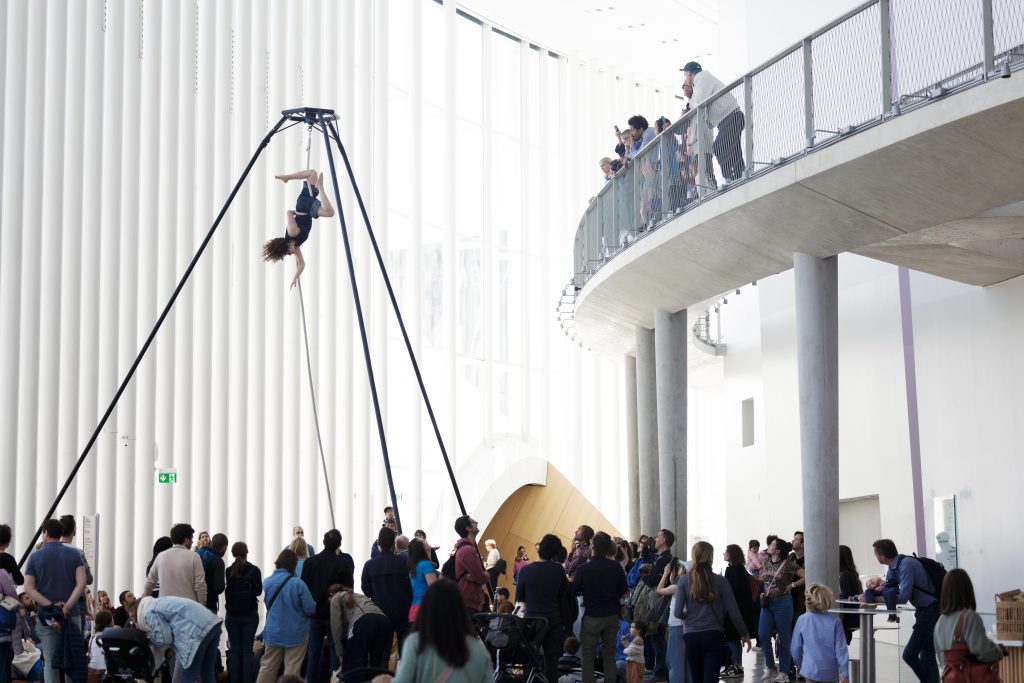
This article was published in the 7th edition of Forbes Luxembourg.
Read more articles:
How Patrick Malget Tackled A Major Taxpayer Pain Point
The Woman Behind The Spaces: Dominika Wojtkowska’s Sensory Approach To Design In Luxembourg
Astrobiome: Using Space To Transform Gut Health And Agriculture

